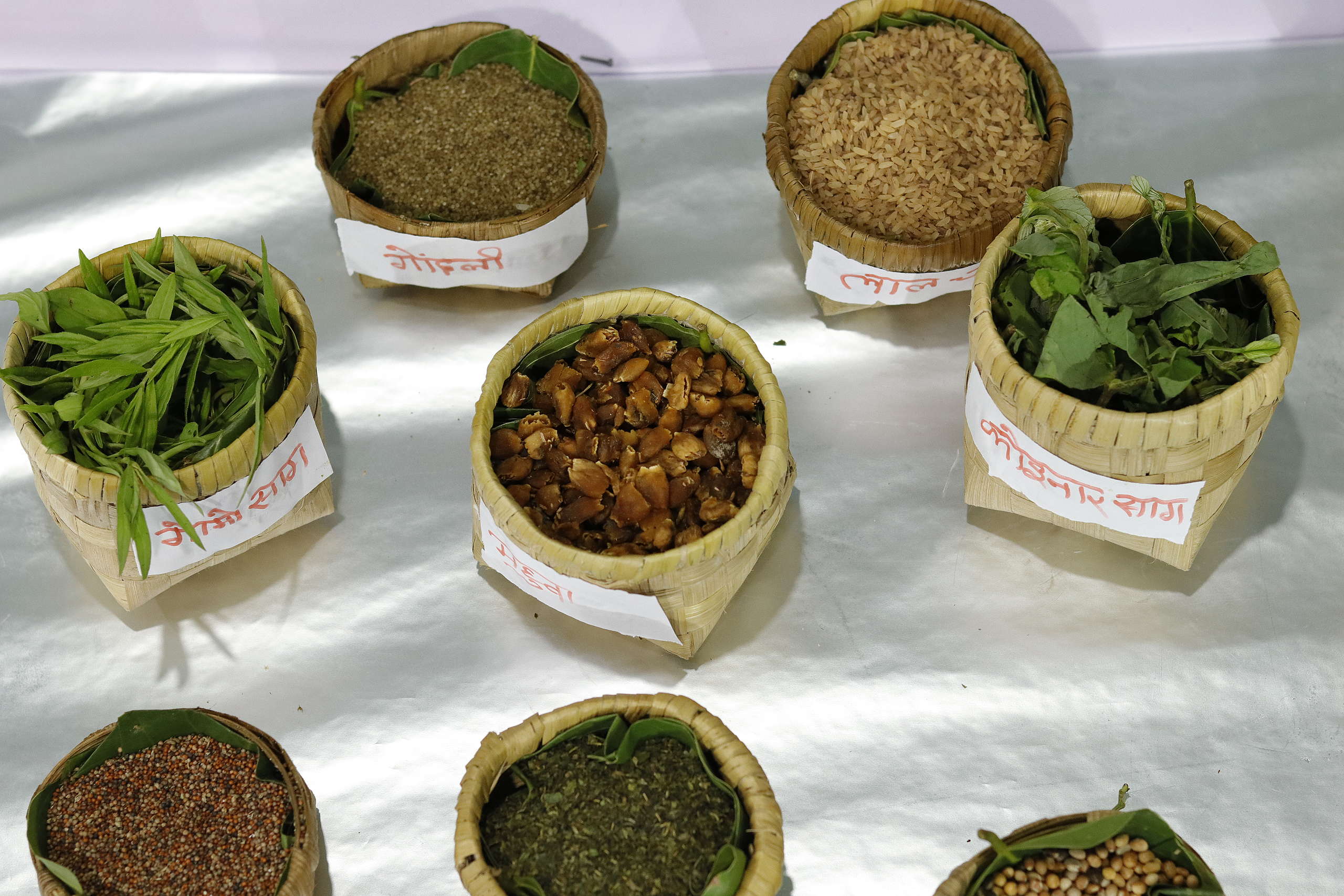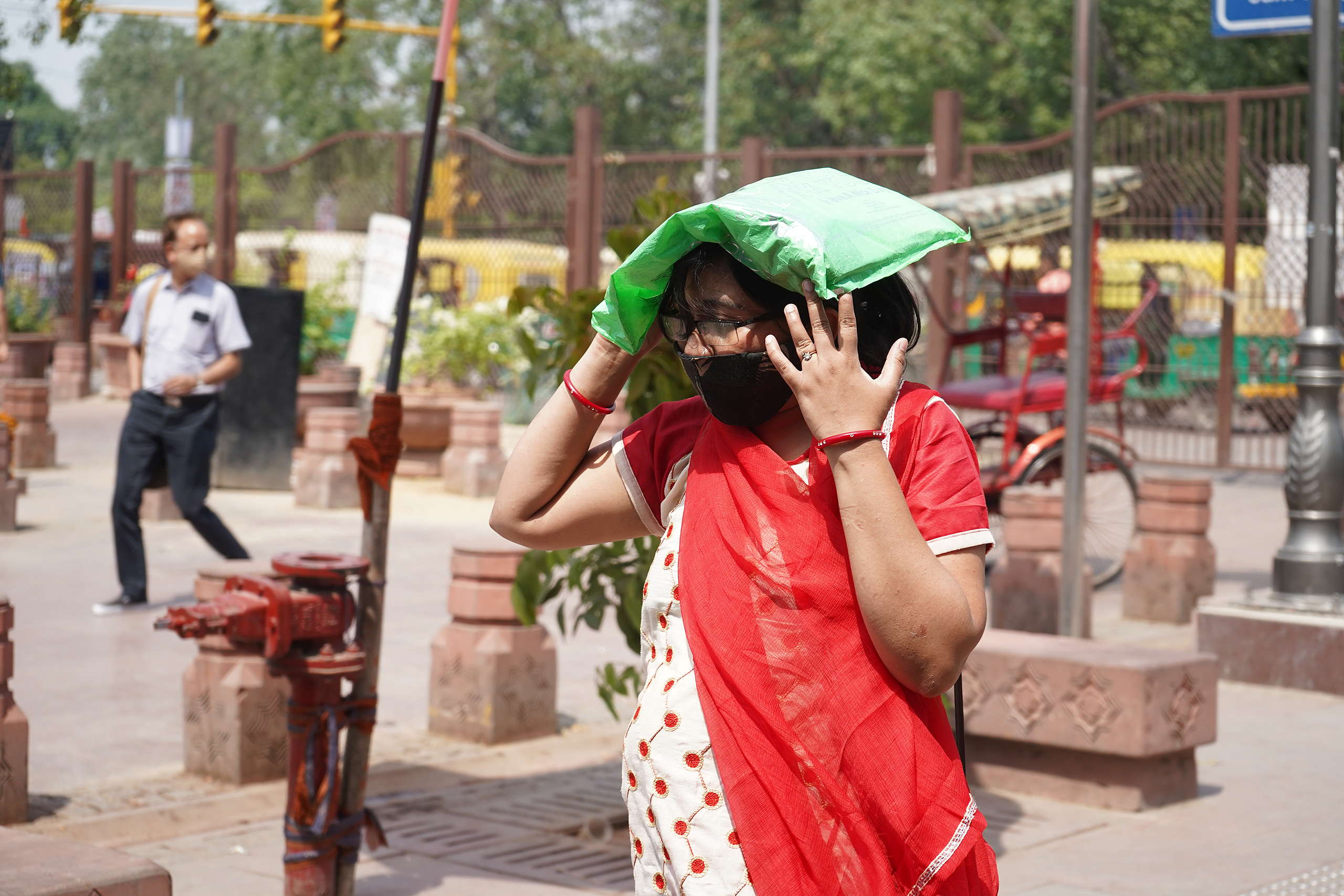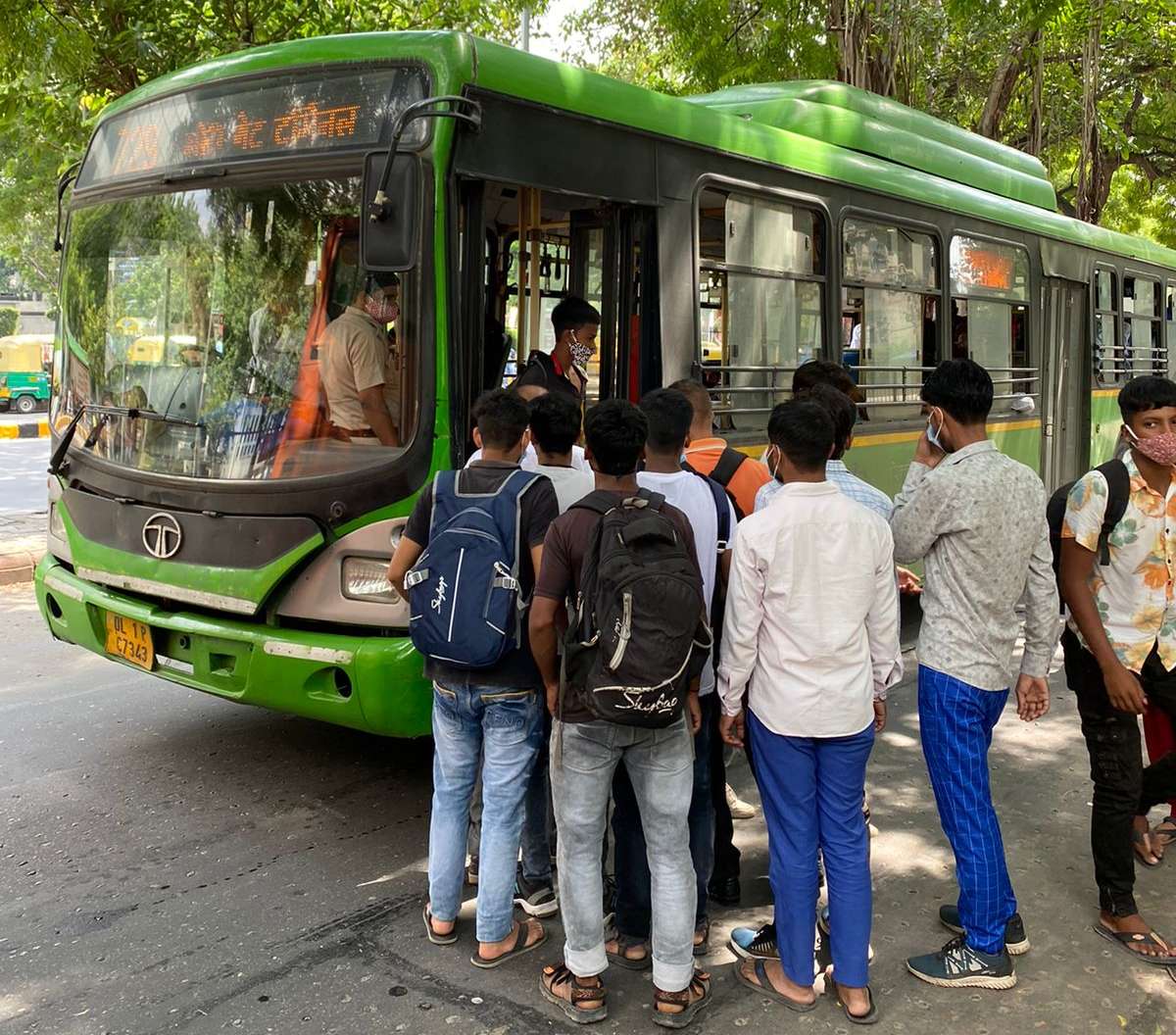On Sunday, May 28th 2023, Greenpeace India unfurled a 20-foot LED banner in front of the Karnataka State Secretariat in Bengaluru. Our message: “Bus For Women, Bus For All” highlights our call for inclusive, safe and accessible mobility for citizens. The action was soon followed with an open letter to the newly elected Chief Minister of Karnataka, which details the key recommendations that focus on making the city’s public transport inclusive and sustainable.
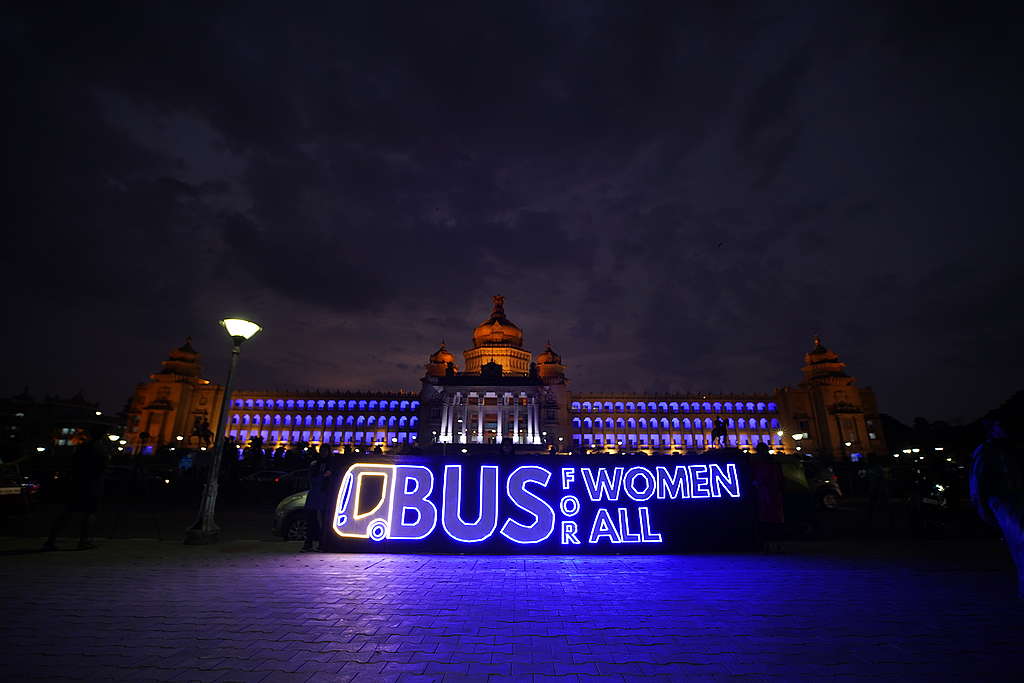
Over the decades, Bengaluru’s public transport infrastructure has struggled to keep pace with the city’s burgeoning population. The city’s fleet of public buses stands at 6700, far short of the numbers required. This has contributed to more private vehicles on the roads, consequently worsening the city’s traffic, air quality and health of its citizens. A recent Greenpeace India report observed that the annual average of PM2.5 and PM10 levels in Bengaluru exceed the WHO’s revised air quality standards. In order to address this complex scenario, we need comprehensive solutions that work for all—especially for those who have been systemically invisibilised—and reimagine our cities as living bodies of solidarity, hope, equity and justice.
With the May 2023 Karnataka State Elections in mind, Greenpeace India set out to address these concerns by engaging with political parties and grassroots communities around issues of mobility, accessibility, and climate-resilience. The objective of this exercise was to champion effective public transport systems as a central pillar of our cities. As a result of this advocacy work, one of our most important recommendations, which talks about providing free public transport for women, was included by the winning party, Indian National Congress, in their manifesto and signed-off by the Cabinet soon after the political party took office in Karnataka. However, while this was a successful initiative, we realise the importance of broadening the discourse around subsidised mobility to address issues beyond affordability.
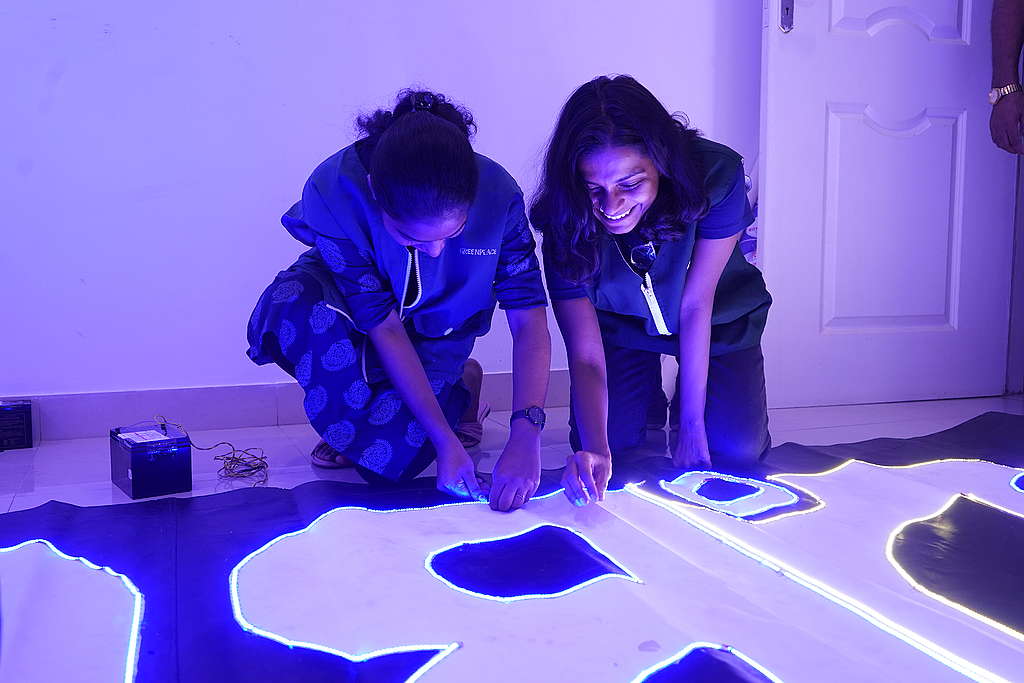
We cannot talk about gender and access to public buses without acknowledging how our commons are deeply gendered and masculinised in ways that undermine the rights and freedom of women and other gender and sexual minorities. We require a transformative shift in our conception of the city as a safe, accessible and healthy space for every citizen—as we move towards feminist and ecologically healthy cities.
When discussing policies such as subsidised public transport, it becomes important to move beyond the narrative of providing welfare (often termed as ‘freebies’), and assess the economic, social and health benefits of such measures. Free public transport for women and other marginalised communities can have several positive impacts such as higher economic participation, a stronger sense of agency and independence, collective ownership of the commons, and a safe and inclusive ecosystem for all. Moreover, such measures can help historically marginalised communities be more resilient to the unequal and gendered impacts of climate change within our cities, which is a crucial step in the fight for climate justice. Hence, this policy must be looked at as the beginning of a reimagining of urban commons.
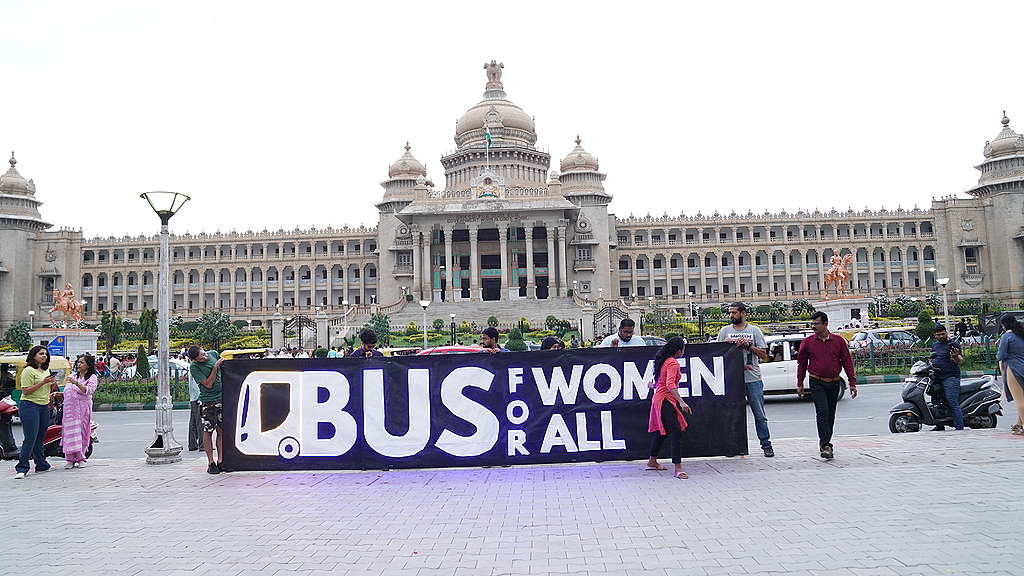
In order to raise these issues among the larger public and the political class of Karnataka, we decided to send a crucial message using the LED banner: A city that works for women is a city that works for all! Through this public action, we called on the government to expand the policy’s scope to include sexual minorities and vulnerable groups such as transgender communities, children, senior citizens and differently-abled citizens within its ambit.
In the open letter to the Chief Minister that followed the action, we highlighted a comprehensive set of reforms to significantly improve the city’s public transport infrastructure. The recommendations talk about ways to make public buses more accessible and safe for women, increasing the present bus fleet to 14000 buses and implementing bus priority lanes—to create an efficient and reliable mobility network that meets the needs of its citizens.
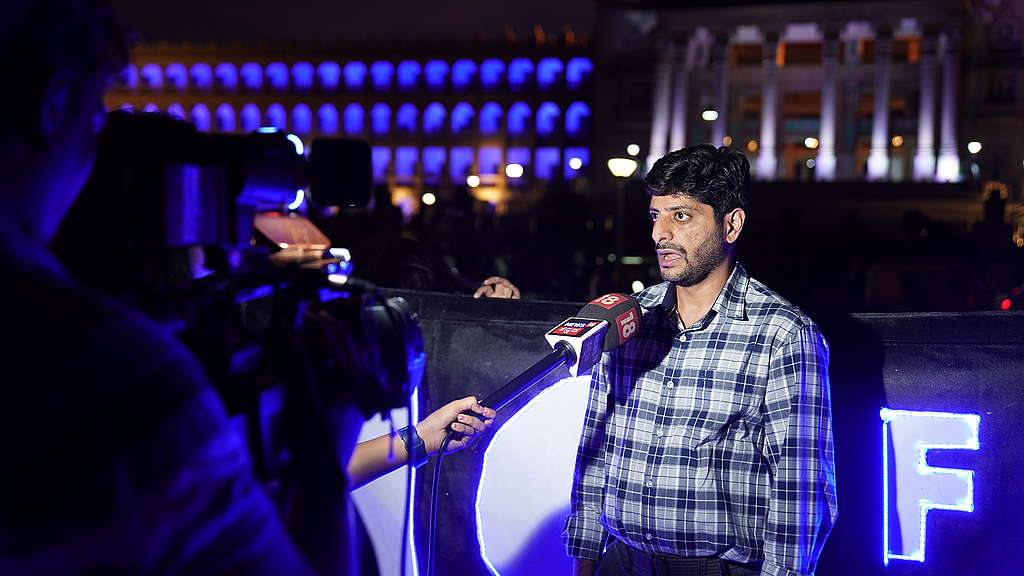
For us, these actions have created a pathway to amplify the needs of communities and bridge key policy gaps to re-envision urban mobility pathways. We must immediately pivot towards clean transportation in the fight against climate change, but, crucially, social and ecological justice have to be at the forefront of this collective reimagining.

